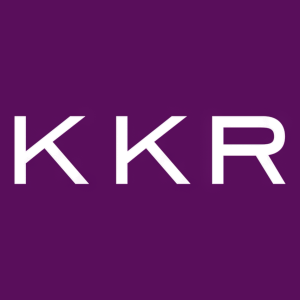KKR Releases “State of Play”
KKR has released its latest macro report, State of Play, led by CIO Henry McVey, detailing how the Ukraine war is reshaping global economic structures. The report lowers growth forecasts for 2022 in the U.S. and Europe but does not predict recession. It highlights structural forces like persistent inflation and economic polarization. KKR advises investors to focus on collateral-based cash flows and opportunistic strategies. Key long-term trends include rising geopolitical risks, energy security intersection with transitions, and shifts toward inflation.
- Recommendations for asset allocation emphasize inflation protection through collateral-based cash flows.
- KKR expects Private Equity with high cash flow conversion characteristics to perform well.
- Lowered 2022 global GDP growth forecasts, indicating a slowdown.
- Rising inflation expected to be stickier than previously forecasted.
Latest Macro Report Highlights How War in
“The pandemic started – and the conflict in
The following points underpin the GMAA team’s latest thinking:
-
The team is again lowering their 2022 global GDP forecasts, including for the
U.S. andEurope , while simultaneously further raising many of their already above consensus inflation forecasts. They do not forecast a European orU.S. recession, but growth will slow materially by late 2022. The team’s economic cycle indicator is also now firmly in late cycle, which is an important change. - The team now has even higher conviction that significant new structural forces are redefining the global economic landscape, including inflation that is likely to be “stickier” than central bankers had been forecasting and the weaponization of economic policies, which will potentially lead to more polarization, as the lines between geopolitics and macroeconomics continue to blur.
- The asset allocation implications of the current environment could end up being quite significant, and as such, the team recommends shortening duration, leaning into collateral-based cash flows and overweighting opportunistic vehicles across liquid and private markets. They also expect Private Equity with high cash flow conversion characteristics to do well.
- These macroeconomic trends are also likely to reinforce other recent trends. For example, more economic polarization and inflation are likely to reinforce populism and enhance already high levels of institutional distrust in certain instances, while the regionalization of supply chains will add a new dimension to geopolitical rivalry that investors will need to consider as more industries and sectors become “strategic” from a national security perspective.
-
The democratization effects of trade that many envisioned post the creation of the
WTO in 1995 may now be replaced by ‘like-minded blocks’ as governments and businesses redefine the meaning of security to include data, search, payments, communications and healthcare.
McVey and his team believe that the following long-term trends warrant investor attention in this time of heightened economic uncertainty:
- Era of Sustained Heightened Geopolitical Risks – We have shifted from a period of benign globalization to one of great power competition, with geopolitical risks only continuing to rise. This is ultimately likely to lead to greater regionalization and more restrictive FDI regimes.
- The Intersection of Energy Security and the Energy Transition – Looking ahead, we think that the energy transition will expand to include energy security, which will likely lead to more investments in brown to green assets, as well as regionalization of supply chains to protect against geopolitical shocks.
- Shifts in Globalization – The pace of globalization is slowing and is even going backwards in some areas. We believe that global supply chains are likely to become more dispersed, as corporations look to reinforce the availability and consistency of production inputs.
- We are Shifting from Disinflation Towards Inflation or Even Stagflation in Certain Instances – Inflation is no longer confined to a small set of pandemic-dislocated categories and is now widespread across many inputs, with wages, housing and commodities being the biggest drivers.
- Starting a Crisis Near the Lower Bound of Interest Rates – The Russia Ukraine conflict only aggravates one of the biggest structural challenges that global capital markets now face as central banks head into this period of uncertainty with bloated balance sheets and monetary policy near its absolute lower-bound relative to history.
Against this economic backdrop, McVey and his team highlight the following conclusions for asset allocation:
- Prioritize inflation protection by overweighting collateral-based cash flows, including Infrastructure, Asset-Based Finance and Real Estate.
-
Continue to shorten duration in both
Public Equities and Global Fixed Income, focusing on companies with real pricing power and high cash conversion in equities. - Lean into opportunistic strategies in liquid and illiquid markets, as increased volatility creates more opportunities for alpha.
- Play both offense and defense by taking a thematic approach to investing, leaning into high conviction ideas, and/or buying complexity.
Links to access this report in full as well as an archive of
- To read the latest Insights, click here.
- To download a PDF version, click here.
- For an archive of previous publications, please visit www.KKRInsights.com.
About
About KKR
KKR is a leading global investment firm that offers alternative asset management as well as capital markets and insurance solutions. KKR aims to generate attractive investment returns by following a patient and disciplined investment approach, employing world-class people, and supporting growth in its portfolio companies and communities. KKR sponsors investment funds that invest in private equity, credit and real assets and has strategic partners that manage hedge funds. KKR’s insurance subsidiaries offer retirement, life and reinsurance products under the management of
The views expressed in the report and summarized herein are the personal views of
View source version on businesswire.com: https://www.businesswire.com/news/home/20220324005250/en/
Media:
212-750-8300
media@kkr.com
Source: KKR
FAQ
What insights does KKR's State of Play report provide for investors in 2022?
How has the war in Ukraine impacted KKR's economic forecasts?
What is KKR's view on the future of inflation amidst current economic conditions?







